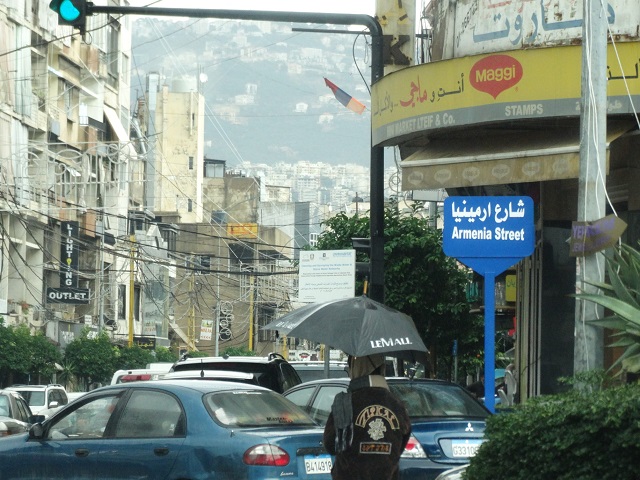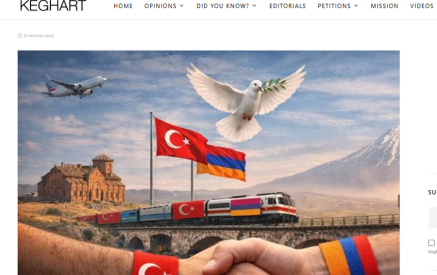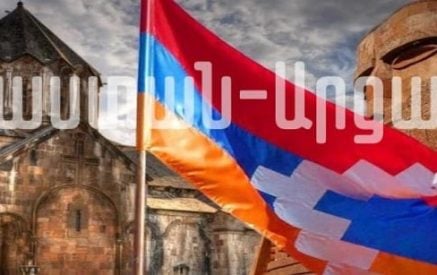The Armenian Weekly. Ossana was 19 years old during the Armenian Genocide in 1915. Born in 1896 in Urfa, in the Ottoman Empire (Turkey today), she found herself in Beirut, Lebanon after the ordeal she and her people faced. Ossana is my great-grandmother. My dad recently found her identity card from 1925, issued by the “State of Great Lebanon.” I don’t know that many things about Ossana, except that she was illiterate (as per this document). Her husband was Hagop Tachdjian, and together they had four children, the eldest of whom was my late grandfather Kevork, who was born in Beirut in 1924 and died in 2009.
Being Armenian wasn’t something I thought much of as a child. I did however experience ridicule, prejudice and racism. Looking back, speaking Armenian was a reason for ridicule. My last name, which my grandfather taught me to cherish, was a joke to some. I was not worthy of playing with some of the other kids, because I am Armenian. Although I speak fluent Lebanese, I was nevertheless ridiculed for the way I speak it – for the way people expected me to speak it. I was once asked by a teacher to remove the Armenian cross I had on my neck because “it looks bizarre”; I was in fourth grade. In a heavily politicized country such as Lebanon, my political affiliation was ascribed to me by those who assume all Armenians have the same political beliefs; not to mention those who assume all Armenians know each other and are somehow related. If only I had a dollar for each time I was told to “go back to Armenia.”
When I was younger, I didn’t know what prejudice and racism were; instead, I was only able to recognize the icky feeling I would feel after these occurrences. On numerous occasions, I have had to defend my Lebanese-ness (whatever that means). This othering I faced had me notice and recognize the Armenian in me. I did not feel fully part of the Armenian community either, though; I did not live in the Armenian quarter, did not attend an Armenian school and Sunday service, did not have many Armenian friends and could neither read nor write Armenian.
All of that aside, I never imagined outright Armenophobic protests to take place in Lebanon like the ones which took place in June. A large number of people marched with Turkish flags and chanted “F** the Armenians,” threatening the Armenian quarter of Beirut and calling for “another massacre.” Some people took this very lightly. What harm could they do, right? I did not. In the midst of Lebanon’s worse financial, economic, political and social crisis, and the outright threat of war, some people found it more than reasonable to protest against the Armenians, in support of their “Ottoman ancestors.”
Read also
The Lebanese of 1915 who welcomed, protected, cherished, appreciated and loved the Armenians fleeing genocide, such as Ossana, are long gone. I am hurt, disgusted and tired. Yes, many non-Armenian Lebanese are amazing people who are not racist, but that does not discount those who are.
We must not deceive ourselves with a non-existent, idealistic and romantic relationship between Lebanon and “its” Armenians. It is time to break the taboo and reassess our position, as Lebanese-Armenians, in the greater Lebanese society. I for one, am tired of aggressively and defiantly justifying my “rightful” place in this country. The political statements of support are nice, but is Lebanon really home? Have we not always been treated as guests? And if not as guests, then surely as the “other.” Slogans of religious, national, ethnic plurality in Lebanon are nice, but deep down, is Lebanon really home?
Ossana and I will eternally be grateful to the land and people who welcomed us among them, but it is time to turn the page. It is finally time to go to a place where we, Armenians, are truly welcomed, protected, cherished, appreciated and loved. Lebanon is no longer that place.
Antonios Tashejian
Caption: Armenia Street in Bourj Hammoud, a municipality in Beirut that’s heavily populated by Armenians (Photo: Leon Petrosyan/Wikimedia Commons)




























































